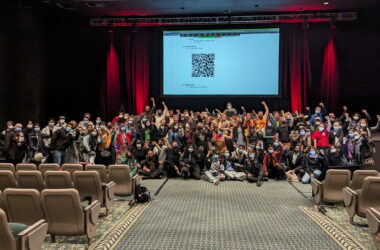On March 9, the SSMU hosted a strategic summit on the needs of international students in the SSMU Building. The event included a discussion of Juhi Sujan’s research on international student services at McGill, followed by a student-only discussion about the problems facing international students at McGill.
Sujan, the president of the McGill International Student Network (MISN), surveyed 196 international undergraduate and graduate students at McGill. Students generally responded that it was easy for them to adapt to social and academic life at McGill, although they complained about the difficulty of navigating the McGill administration.
Sujan also looked at McGill services like international orientations, drop-in hours, and introductory workshops, which deal with immigration and provide social support to help integrate students into Montreal.
The student-only discussion included a conversation on the significance of tuition increases and protests for international students. While they pay much more than Quebec students, international students could also be impacted by a strike if, for example, the semester is extended.
Students also expressed concerns with how different values can change each student’s view of the strike. While some students oppose tuition increase because they believe education is a right, some international students don’t see it that way.
“Education is never talked about as a right in some places,” SSMU VP University Affairs Emily Yee Clare, who came to McGill from Alberta. “It’s a privilege because of how much you have to pay [in the U.S.]. That changes the way you’re willing to approach tuition hikes. So the right to education … is something that a lot of people can’t associate with.”
International students also have problems paying for tuition through work study programs and bursaries, and many students feel that partial scholarships and campus jobs are not enough.
“Financial aid is often based on how much your parents could in theory give you, but for instance if you’re queer and you come out to your parents and they don’t like that one bit and decide to cut you off … the criteria for financial aid makes no sense in some cases,” Joel Pedneault, SSMU VP External, said.
Some international students have difficulty finding a job in Montreal because they may be unable to speak French or may have difficulty managing their time between studies and work.
Josh Redel, an American U4 engineering student, explained that he didn’t realize that he would need French in order to work here.
“I don’t think it’s one of those things you consider,” he said. “There [are] so many things going on when you’re applying for school … Montreal is very English … I think [students are] often caught off-guard.”
Katie Larson, an American U2 music student, explained that she is forced to work 55 hours a week during the summer to make up for not being able to work throughout the rest of the year.
“I can’t afford to spend a month of my free time [to] go do something academic, something like an unpaid internship,” Katie explained.
Some international students try to solve this problem by working under the table in Montreal, but this type of employment leaves students vulnerable to abuse.
“I’ve heard so many nightmare stories about students who are getting things like painting jobs throughout the summer and they end up working for two weeks and they don’t get a single cent. [Employers] just cycle in new international students,” Clare said.
Clare suggested workshops for international students on their rights in Canada. Other students said that managing school and work is an ongoing problem and that McGill could help them more.
While McGill may cause some problems for international students, Sujan believes that McGill’s international students, who make up 21 per cent of the student population, help build community within the university.
“Through MISN, we’ve helped not only international students but all McGill students,” Sujan said. “We encourage the attendance of all students … lots of Canadians think our events are super cool and well organized [and] people generally flock to our events.”








